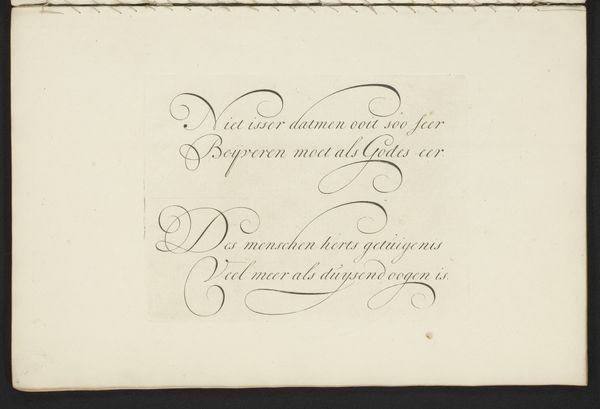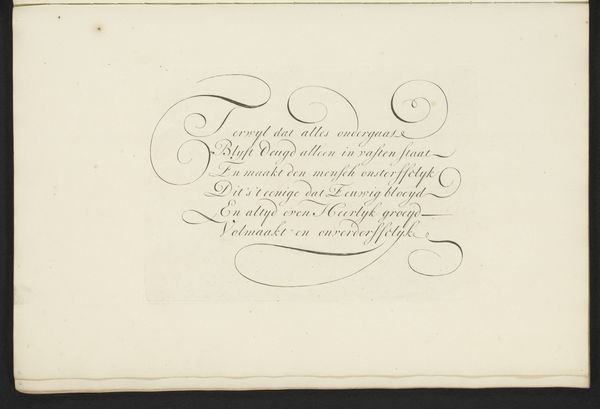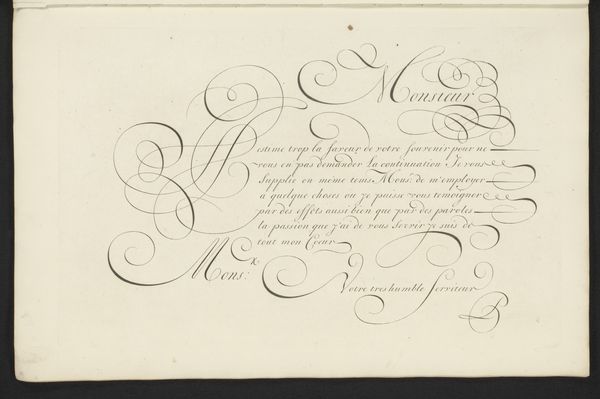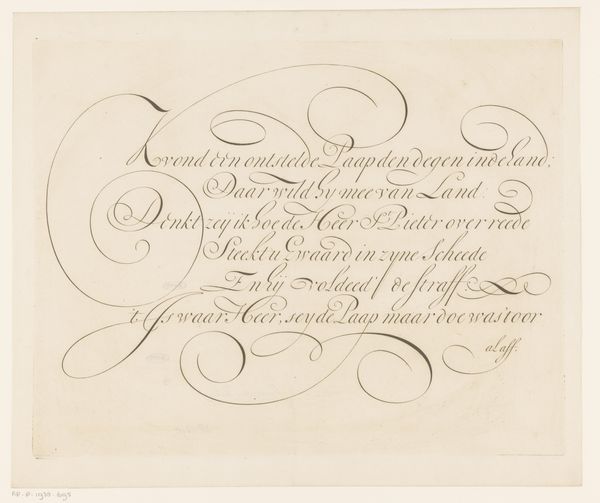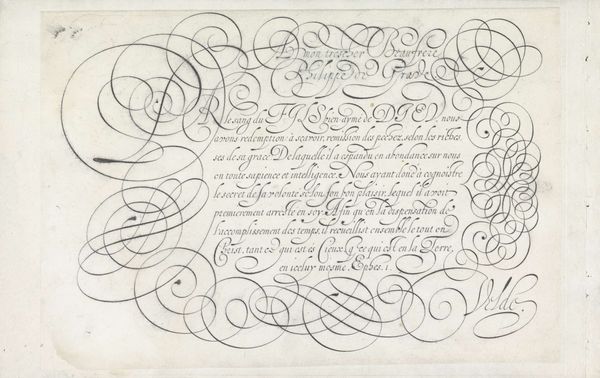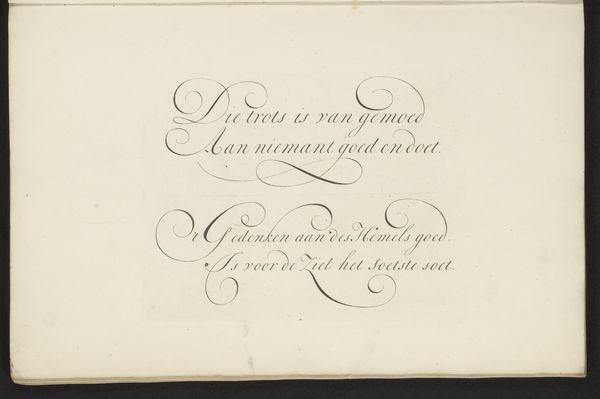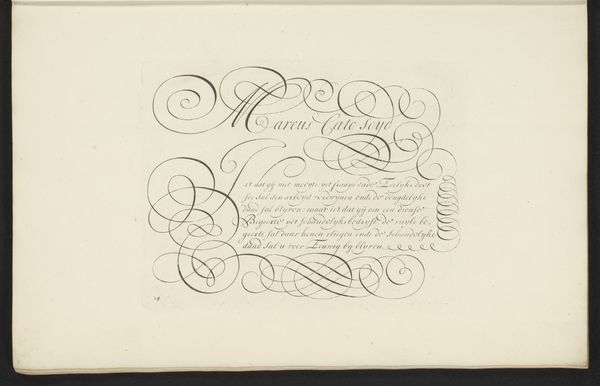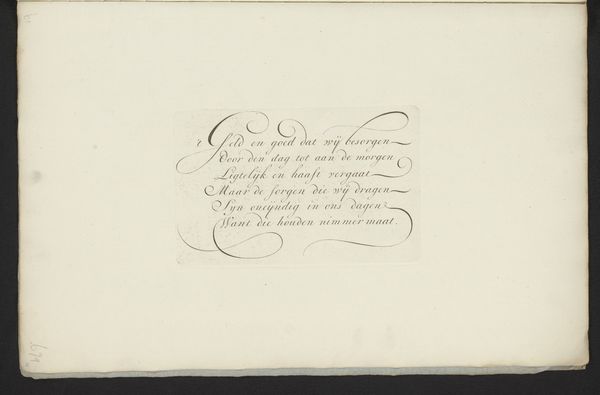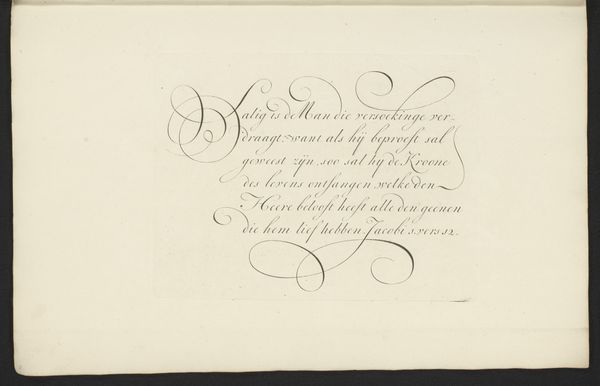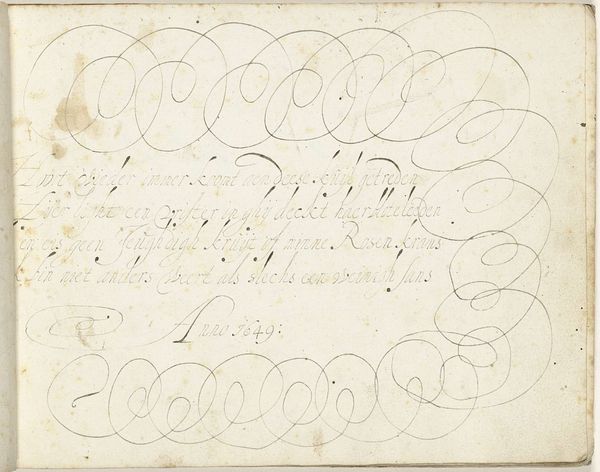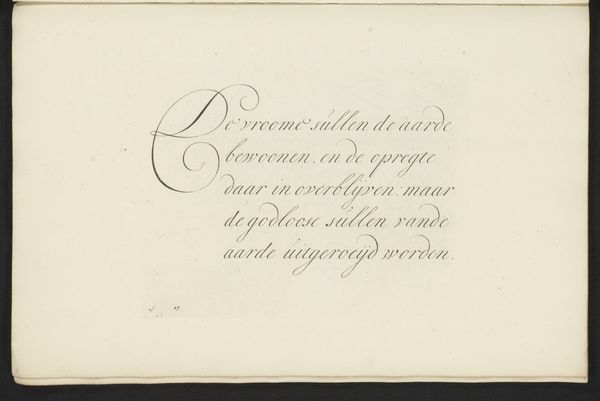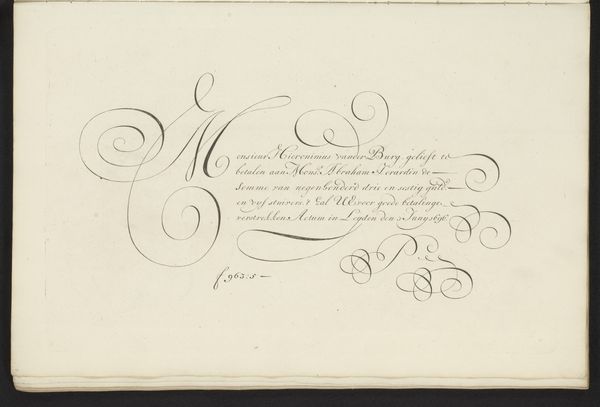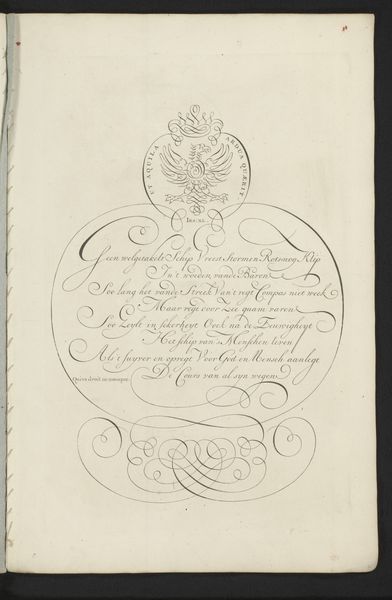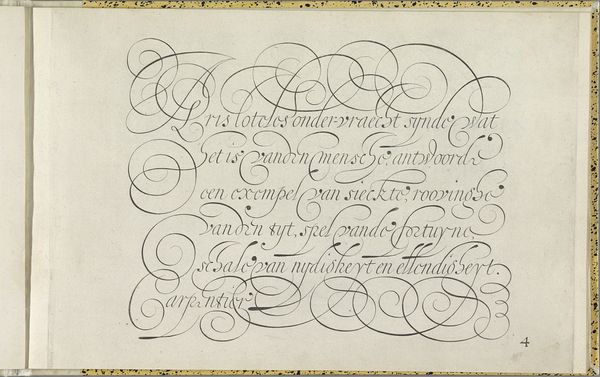
drawing, paper, ink
#
drawing
#
script typography
#
hand-lettering
#
dutch-golden-age
#
lettering
#
hand drawn type
#
hand lettering
#
paper
#
ink
#
hand-drawn typeface
#
geometric
#
thick font
#
typography style
#
handwritten font
#
calligraphy
#
small lettering
Dimensions: height 208 mm, width 250 mm
Copyright: Rijks Museum: Open Domain
Bastiaan Boers created this calligraphy piece with ink on paper in the Netherlands, sometime around the late 17th or early 18th century. The text, in Dutch, translates to "Means do not help where God offers no aid." During this period, the Dutch Republic was a major economic and cultural power. It was also a deeply religious society, with Calvinism as the dominant faith. This artwork reflects the religious sensibility of the time, emphasizing reliance on divine intervention rather than human efforts. Calligraphy itself held a unique position. It was highly valued as both a practical skill for record-keeping, and as an art form. Through careful strokes, letterforms embodied ideals of order and piety, reinforcing the status quo. To fully understand this work, we might consult religious texts, social histories of the Dutch Republic, and studies of calligraphy as a cultural practice. By considering these sources, we can understand how art both reflected and shaped the values of its time.
Comments
No comments
Be the first to comment and join the conversation on the ultimate creative platform.
